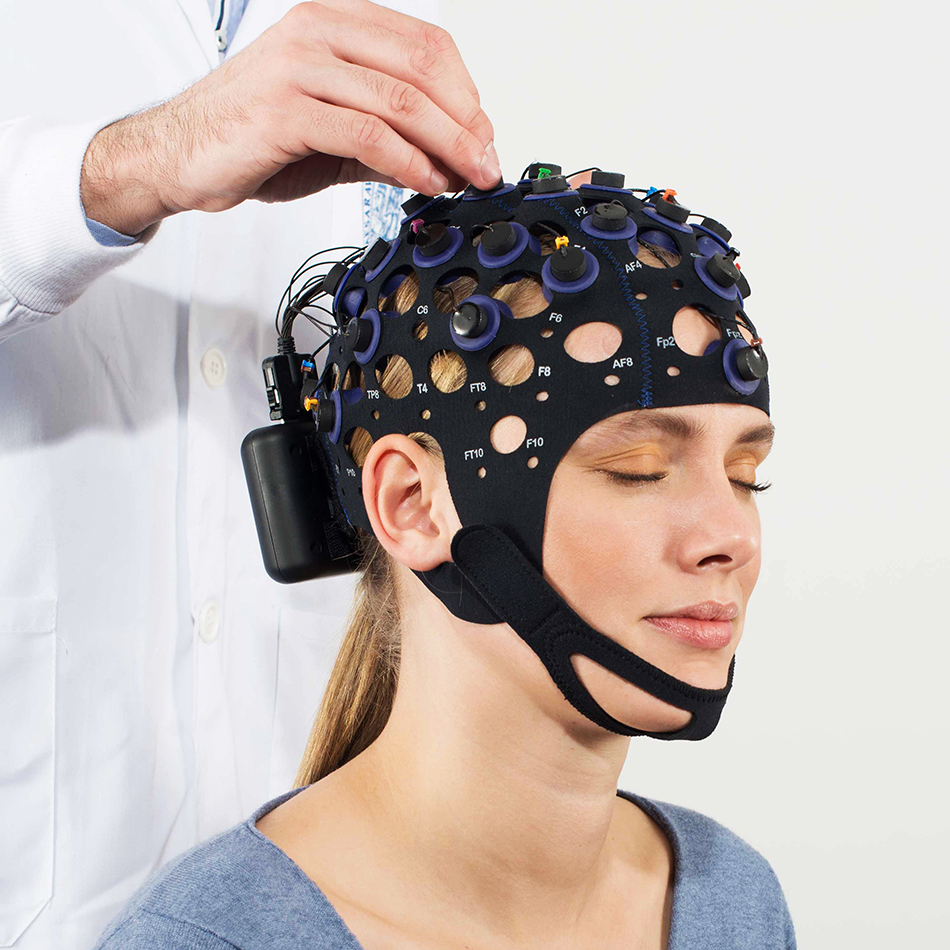Have Any Questions?
+91 77 9849 9977
Visit Us At
103, Shivom Regency, Baner Rd, Pune
+91 77 9849 9977
103, Shivom Regency, Baner Rd, Pune


To understand how an electroencephalogram (EEG) works, it is useful to understand some basics about how the brain itself works. Brain activity consists of a flurry of electrical signals flowing through cells, called neurons. When a neuron “fires,” or becomes active, an electric current ripples down the cell. And when many neurons fire at the same time, sensors on the scalp can detect this shift in voltage a process that forms the basis of EEG. A typical EEG cap consists of many sensors small metal discs, called electrodes which monitor signals from a number of locations around the head.
EEG charts comprise a series of wavy lines, which represent rising and falling voltages within different groups of neurons. Often referred to as “brain waves,” these ripples are measured in hertz, or cycles per second, and are classified according to their frequency. Brain wave categories include: delta (0.5-4 hz), alpha (8-12 hz), beta (12-35 hz), theta (40-8hz), and gamma (32-100 hz) waves.
An EEG can find changes in brain activity that might be useful in diagnosing brain disorders, especially epilepsy or another seizure disorder. An EEG might also be helpful for diagnosing or treating:
Doctors trained to analyze EEGs interpret the recording and send the results to the doctor who ordered the EEG. You might need to schedule an office appointment to discuss the results of the test.
If possible, bring along a family member or friend to the appointment to help you remember the information you’re given.
Write down questions to ask your doctor, such as:

Mail Your Resume At : drpriyankaneuro13@gmail.com